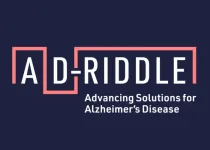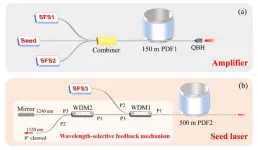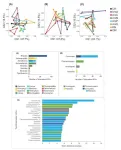Stockholm, January 30, 2024 — Members of the AD-RIDDLE consortium announced today that they will begin a new initiative that aims to bridge the gap between Alzheimer’s research, implementation science, and precision medicine. The AD-RIDDLE programme will offer healthcare professionals a suite of validated solutions for timely detection and diagnosis of Alzheimer’s disease and dementias, to match individuals with the right interventions at the right time, enabling people to better understand what they can do to reduce risk and prevent cognitive decline.
Alzheimer’s disease represents a major public health challenge. In Europe alone, around 7 million people are living with Alzheimer’s disease, a figure that is expected to double by 2050. There is a pressing need for effective preventive, diagnostic and therapeutic solutions, implemented at scale, and for increased engagement of individuals and caregivers with disease prevention, management and care. The advent of disease modifying therapies will lead to more people seeking diagnosis and treatment. While this initially represents an increasing cost to health systems and society at large, it also presents enormous potential for prevention, opportunities for more timely diagnosis and personalised treatment options, and overall health-economic benefits in the long term.
“With new research on the efficacy of multi-domain lifestyle interventions and the promise of disease-modifying therapeutics, there is renewed hope for patients, caregivers, and healthcare providers, and a window of opportunity for substantial progress,” said Miia Kivipelto, Professor, Research Director and Senior Geriatrician at the Karolinska Institutet and Karolinska University Hospital, and Principal Investigator (PI) for the AD-RIDDLE project. “AD-RIDDLE represents the greatest opportunity yet for cross-sector progress in Alzheimer's research and care.”
Thanks to funding from the Innovative Health Initiative (IHI) and UK Research and Innovation (UKRI), the AD-RIDDLE consortium will begin a five-year effort to transform how Alzheimer’s disease (AD) is detected, diagnosed, and treated across healthcare settings. The consortium unites academic and industry partners, healthcare providers, regulatory bodies, and patient organisations, bringing together a mix of world-class research, clinical practice, diagnostics, advanced analytics and data platform capabilities to the project. AD-RIDDLE builds on existing technology, biomarkers, tools, and interventions, many developed by the consortium partners through prior EU-funded initiatives, including studies building on Professor Kivipelto’s ground-breaking FINGER research.
AD-RIDDLE aims to unlock efficiencies for AD diagnosis and treatment, removing barriers to entry that traditionally slow down patient access to healthcare providers and precision medicine. The project will create a modular toolbox platform designed to provide support at all stages of the clinical pathway, including:
A digital community engagement portal, including self-guided assessment tools for older adults, pathways for timely referral to healthcare providers, and resources that are tailored and actionable.
An array of screening tools for increased accuracy in risk detection and early diagnosis, including digital cognitive assessments and blood-based biomarkers.
A decision support toolkit for healthcare providers, powered by validated algorithms for differential diagnoses, prevention, and care.
Personalised patient therapies which can be physician-supported or self-guided, including lifestyle interventions and pharmacological treatments, matching patients to the right interventions at the right time.
The AD-RIDDLE platform will allow for flexible adaptation and application in diverse settings, from memory clinics to primary care and the broader population outside of healthcare systems. A real-world testing study will be conducted in these settings across six European countries and will provide extensive evidence to support implementation of diagnostic tools, treatments and lifestyle interventions. Data from the study will be hosted in a GDPR-compliant manner on the European Platform for Neurodegenerative Diseases (EPND), an IMI2-funded initiative which will make datasets available for additional research and discovery, with the goal of facilitating new findings in neurodegenerative disease research.
“AD-RIDDLE will rapidly advance the “last mile” of innovation, bridging Alzheimer’s care pathways from research to a real-world setting in an efficient and effective manner based on high-quality data,” said Niranjan Bose, Managing Director, Health and Life Sciences at Gates Ventures and co-lead for the project. “AD-RIDDLE will generate real-world evidence for clinical implementation of precision diagnostics, interventions and therapies, and drive new research on Alzheimer’s disease by making datasets available through EPND.”
With broad participation of patients and clinical experts across a diverse mix of healthcare settings in the EU, AD-RIDDLE aims to empower patients with actionable guidance to address their cognitive health and will push Alzheimer’s research forward.
About AD-RIDDLE
AD-RIDDLE receives funding under the auspices of the Innovative Health Initiative Joint Undertaking (IHI JU) and UK Research and Innovation (UKRI) under the UK government’s Horizon Europe funding guarantee. The AD-RIDDLE programme has an initial budget of over €31 million, comprising €12,090,250 from the EU, €16,421,395 from the contributing partners and €2,368,307.25 from UKRI. The budget is distributed across a total of 24 partners:
Region Stockholm (manages all publicly-financed healthcare in Stockholm County)
Karolinska Institutet
FINGERS Brain Health Institute
University of Gothenburg
Lund University
University of Eastern Finland
Stichting VUmc
Universiteit Maastricht
Fundacio BarcelonaBeta Brain Research Center
SYNAPSE Research Management Partners SL
Alzheimer Europe
Alzheimer’s Disease International
Università Degli Studi Di Perugia
Gates Ventures LLC
Davos Alzheimer’s Collaborative
Combinostics OY
Fujirebio Europe NV
Sanofi
C2N Diagnostics LLC
neotiv GmbH
Cambridge Cognition Limited
University of Leicester
Imperial College of Science Technology and Medicine
National Institute for Health and Care Excellence
For more information, contact info@adriddle.org or visit ad-riddle.org
About the Innovative Health Initiative
The Innovative Health Initiative (IHI) aims to translate health research and innovation into real benefits for patients and society, and ensure that Europe remains at the cutting edge of interdisciplinary, sustainable, patient-centric health research. Health research and care increasingly involve diverse sectors. By supporting projects that bring these sectors together, IHI will pave the way for a more integrated approach to health care, covering prevention, diagnosis, treatment, and disease management. IHI is a partnership between the European Union and European industry associations representing the pharmaceutical, medical technology, biotechnology, digital health, and vaccine industries, namely COCIR, EFPIA (including Vaccines Europe), EuropaBio, and MedTech Europe. IHI’s total budget for the period 2021-2027 is €2.4 billion. Half of this comes from Horizon Europe, the EU’s research and innovation programme. The IHI industry partners have committed €1 billion to IHI, and a further €200 million can be committed by other organisations that decide to become Contributing Partners.
Acknowledgement
This project is supported by the Innovative Health Initiative Joint Undertaking (IHI JU) under grant agreement No. 101132933. The JU receives support from the European Union’s Horizon Europe research and innovation programme and COCIR, EFPIA (including Vaccines Europe), EuropaBio, MedTech Europe, Gates Ventures, Davos Alzheimer’s Collaborative, Combinostics OY, Fujirebio Europe N.V, Cambridge Cognition Ltd., Sanofi, C2N Diagnostics LLC, and neotiv GmbH. The participation of Cambridge Cognition Limited, University of Leicester, Imperial College of Science Technology and Medicine, and the National Institute for Health and Care Excellence (NICE) will be funded by UKRI under the UK government’s Horizon Europe funding guarantee.
Disclaimer
Funded by the European Union, the private members, UKRI, and the contributing partners of the IHI JU. Views and opinions expressed are however those of the author(s) only and do not necessarily reflect those of the aforementioned parties. None of the aforementioned parties can be held responsible for them.
END






